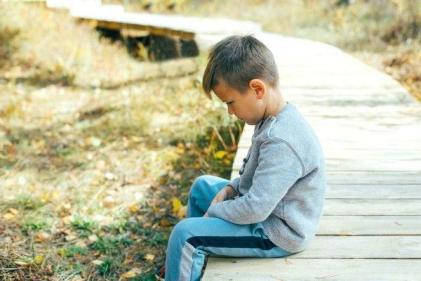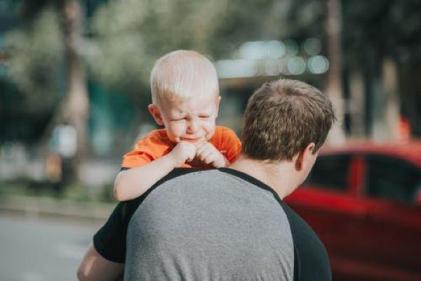Expert advice from our family doctor, Dr Eleanor Galvin:
Kids head injuries happen in a flash. You take you eye of them for a minute and they will run into each other in the playground, fall down steps, fall off their bikes!
So the trouble is that even though this is part of normal childhood, how do you know whether your child is at risk of having sustained a concussion?
It is not as easy as one might think. Especially in children.
Sometimes kids are too small to tell talk or else don’ have the vocabulary to discuss whether they feel disorientated or confused. The nature of concussion is that they may say they are fine, even adults do quite often not notice symptoms in themselves.
A concussion is a type of traumatic brain injury that is caused by a blow to the head or body, a fall, or another injury that jars or shakes the brain inside the skull. I think of it as a ripe avocado (the brain) inside a hard box (the skull). Shaking the box or hitting it can bruise the avocado.
I notice in practice that many people believe the child has to pass out at the time of banging their head to be considered, in their mind, at risk of concussion. Let’s dispel this myth immediately! It is not always easy to know if someone has a concussion. You don't have to pass out (lose consciousness) to have a concussion.
Symptoms of a concussion range from mild to severe and can last for hours, days, weeks, or even months. If you notice any symptoms of a concussion, contact your doctor.
Symptoms are many and varied. This initial list is of symptoms in adults and children
1. Not thinking or concentrating clearly, poor memory and feeling slowed down, all affect a person’s ability to think clearly.
2. Vomiting, headaches, blurry vision, dizziness, poor balance, tiredness, sensitivity to bright light and noise.
3. Emotional, anxious, upset, prolonged crying.
4. Finding it hard to sleep, sleeping too much or too little, hard to rouse.
Young children can have the same symptoms of a concussion as older children and adults. But sometimes it can be hard to tell if a small child has a concussion. Young children may also have symptoms like:
1. Crying a lot, complaining of headaches, not keen to play with their favourite toys, unusual behaviours, trouble walking, and changes in how they feed, eat or sleep.
2. They may appear sad or down, overly sensitive, have temper tantrums.
3. They may lose skills such as no longer being toilet trained.
The most important point of the above long complicated lists is that if you suspect your child may have hit their head hard enough to get a concussion they need to urgently see a doctor for assessment and advice.
The danger with a head injury is even though concussions are relatively common they may be part of an underlying bleed or serious head injury. This distinction needs to be made by a doctor.
They can scan the child’s head with an MRI or CAT scan if necessary. Also if your child has a concussion, it is to get all the information on monitoring in case of late complications. We are all just understanding more about the impact of multiple concussions and how a second concussion in a small time period can be extremely dangerous and even fatal in some.
Concussions are subtle and easily missed by the untrained eye.
A doctor usually take a detailed history of the incident or injury from the parent or guardian and examine the child carefully to pick up any subtle neurological signs.After being seen by a doctor, some children have to stay in the hospital to be watched.
Others can go home safely. Children who go home still need to be watched closely for warning signs or changes in behaviour.
Call or seek emergency care right away if you are watching a person after a concussion and the person has:
- A headache that gets worse or does not go away.
- Weakness numbness, or decreased coordination.
- Repeated vomiting or nausea.
- Slurred speech.
- Extreme drowsiness or you cannot wake them
- One pupil that is larger than the other
- Convulsions or seizures
- A problem recognising people or places.
- Increasing confusion, restlessness, or agitation
- Loss of consciousness.
Warning signs in children are the same as those listed above for adults. Take your child to the emergency department if he or she has any of the warnings signs listed above or:
- Will not stop crying.
- Will not nurse or eat.
AFTER:
Some people feel normal again in a few hours. Others have symptoms for weeks or months. It is very important to allow yourself time to get better and to slowly return to your normal activities. If your symptoms come back when you are doing an activity, stop and rest for a day. This is a sign that you are pushing yourself too hard. It is also important to call your doctor if you are not improving as expected or if you think that you are getting worse instead of better.
Rest is the best medicine for a concussion!
Here are some tips to help you get better:
- Get plenty of sleep at night, and take it easy during the day.
- No alcohol and illegal drugs.
- Do not take any other medicines unless your doctor says it is okay.
- Avoid activities that are physically or mentally demanding (including housework, exercise, schoolwork, video games, text messaging, or using the computer).You most likely will need to be off school or work for some while. Children post-concussion will not be fit to go to crèche for some time.
- Ask your doctor when it's okay for you to drive a car, ride a bike, or operate machinery.
- Use pain medicine as directed. Your doctor may advise you to take paracetamol or give paracetamol suspension to a child at intervals.
- Prevention is key!
Some things in like are unavoidable as children grow, learn to walk and explore- and often some kids have a keen interest in climbing!
- Use child car seats correctly.
- Insist your child wears a helmet when cycling or roller-skating.
- Look at the hazard around your house and take precautions. Any windows without guards they could fall out? Do you have safety gates on top of your stairs?
Not every injury needs to go to a doctor but if you have even a worry your child is concussed you need to make that trip.
It any of the symptoms below happen straight after incident – you need to go straight to the emergency room without any delay.
- Loss of consciousness at the time of the injury
- Confusion or disorientation after the injury
- A headache along with nausea and/or vomiting
- Any scalp injury or swelling in a child under 2 years of age
If you are in doubt, find out.
Dr Eleanor Galvin is a GP specialising in pregnancy and children's healthcare








